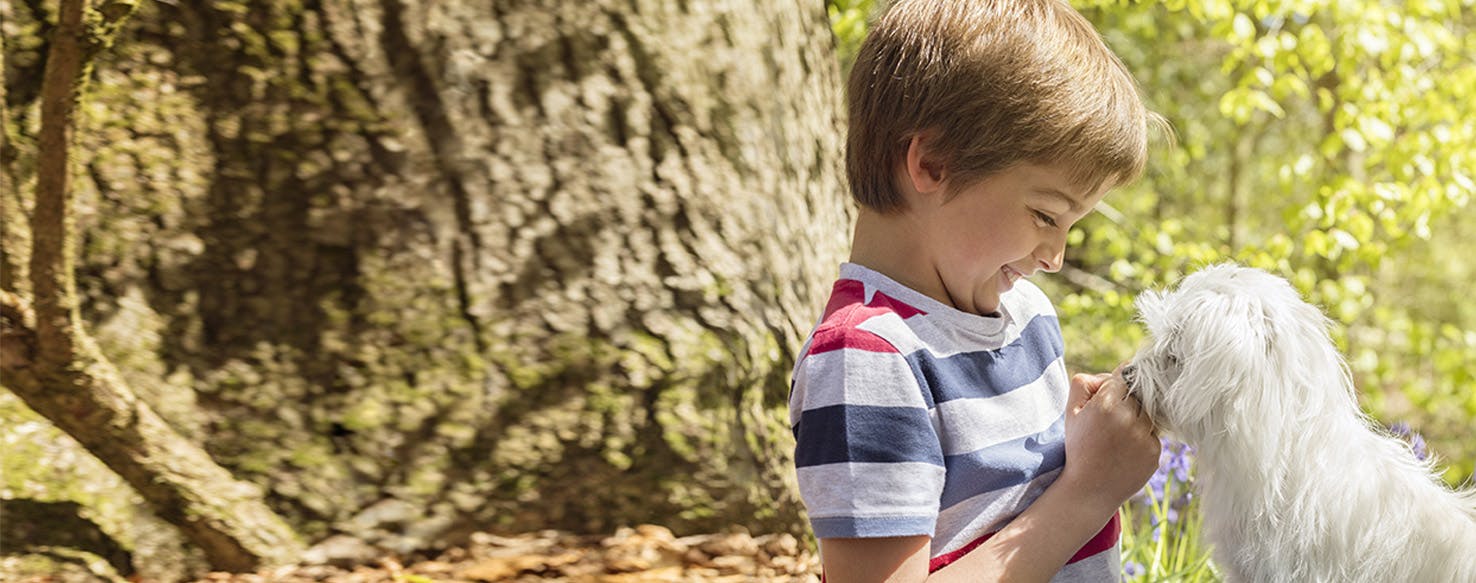- Home
- The Daily Wag!
- Behavior
- Why Do Dogs Try To Protect Their Owners

Common
Normal
We've all seen the news on TV that talks about family dogs saving people from harm or maybe you have experienced a similar situation yourself. There’s a reason why dogs are called “man’s best friend” as they are known to give their own life in order to protect their owner.
But where does this common behavior stem from and what determines a dog to display such loyalty without any second thoughts? Just like the ancient Greeks, Babylonians and Assyrians, we rely on our furry friends to protect us from danger. Let’s find out more about your dog’s instinctive need to protect and the implications that come along with it.
By developing such strong bonds with your dog, as time goes by, you become a part of his family just as much as he becomes a part of yours. His instinctive need to protect is established and reinforced through mutual trust and guidance. If someone threatens you or your family, the dog will react and become defensive. However, this can go both ways if you as the owner don’t socialize him properly and allow him to act aggressively to strangers or anyone crossing your path. Allowing your dog to become overprotective is never a solution. Dogs need to know their boundaries, and in order for that to happen, they need to be taught and guided accordingly. As leaders of the pack, dogs will never hesitate to put themselves in harm's way if they sense you are in danger.
Although protective behaviors range across dog breeds, some types of dogs do make the best guards for the family. In this case, German Shepherds are considered to be the original watchdogs and also have been known to assist military troops on the front lines. There are four types of dogs that can provide ideal protection to your home and loved ones:
Watchdogs – they are trained to alert their owners whenever they sense an intruder.
Guard dogs – they are trained to charge and pin down any perceived threat.
Protection dogs – they are trained to attack intruders, but not as a natural born instinct as compared to guard dogs.
Livestock guard dogs – they are trained to perform all the roles of the three other counterparts.
Other reasons that your dog may become protective of you depend on his early socialization status and encouragement. This means that if your dog has suffered from previous abuse, he will be more likely to show signs of being overly protective, in a need to show his appreciation for the good treatment he’s never received before. Furthermore, a dog will continue to be aggressive towards strangers, if you take no actions to stop this behavior at the moment it takes place.
Need advice about your pet's health?
Get answers fast from a veterinary professional 24/7 in the Wag! App.
Get Vet ChatHaving your dog protect you and your family from real harm is something to be welcomed and appreciated. Dogs are especially protective of children, but in some cases, this may translate into unfounded aggression and even biting. Sometimes, their protective instinct can be so strong they will become defensive even when there’s no danger at all. If you want to keep your family safe, your dog needs to understand the difference between a real threat and something that is not harmful. For that, you need early and frequent socialization and regular training. A well-trained dog will always be there for you and your kids, without posing as a potential threat to other people.
The animal’s breed is also something you should consider when buying or adopting a family dog. Some breeds make better guard dogs than others. Which is why herding dogs are the number one choice for families with children. On the other hand, if your dog shows signs of anxiety and fear, they will be more likely to lash out or commit unprovoked attacks. If you can’t afford specialized therapists, you should know that the typical "good dog" behavioral training is more than necessary to make sure your pup gets proper care and guidance.
So what makes your dog an effective family guard? It’s all about finding the ideal balance between training and instinct. Sounds more like a scientific thing, but it’s actually pretty easy to accomplish. The sooner you introduce your dog to proper socialization and good training, the more effective his guarding skills will become. You won’t have to worry about him attacking others as long as you address the issue in a responsible way. Whenever he snaps at strangers on the street and you do nothing to stop and discipline him, they will perceive this as “good behavior” and continue to express it.
Should you be happy that your four-legged friend shows signs of protection towards you and your loved ones? Of course, dogs carry this trait in their genes and it’s always nice to know you can rest assured your home and family are in good…paws. The only thing you have to be wary about is allowing him to become over-protective, as this may lead to unwanted problems in the future.
Written by a Amstaff lover Marieta Murg
Veterinary reviewed by:
Published: 02/14/2018, edited: 01/30/2020
More articles by Marieta Murg

